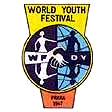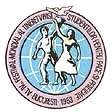
Beginning in late 2002 and continuing after the 2003 invasion of Iraq, large-scale protests against the Iraq War were held in many cities worldwide, often coordinated to occur simultaneously around the world. After the biggest series of demonstrations, on February 15, 2003, New York Times writer Patrick Tyler claimed that they showed that there were two superpowers on the planet: the United States and worldwide public opinion.

Student activism or campus activism is work by students to cause political, environmental, economic, or social change. In addition to education, student groups often play central roles in democratization and winning civil rights.

The Chicano Moratorium, formally known as the National Chicano Moratorium Committee Against The Vietnam War, was a movement of Chicano anti-war activists that built a broad-based coalition of Mexican-American groups to organize opposition to the Vietnam War. Led by activists from local colleges and members of the Brown Berets, a group with roots in the high school student movement that staged walkouts in 1968, the coalition peaked with an August 29, 1970 march in East Los Angeles that drew 30,000 demonstrators. The march was described by scholar Lorena Oropeza as "one of the largest assemblages of Mexican Americans ever." It was the largest anti-war action taken by any single ethnic group in the USA. It was second in size only to the massive U.S. immigration reform protests of 2006.

The Young Communist League of Canada (YCL-LJC) is a Canadian Marxist–Leninist youth organization founded in 1922. The organization is ideologically aligned with, but organizationally independent from, the Communist Party of Canada. The organization's members played a leading role in the On-to-Ottawa Trek and made up a significant portion of the Mackenzie–Papineau Battalion, which fought on the Republican side in the Spanish Civil War.

Opposition to United States involvement in the Vietnam War began with demonstrations in 1965 against the escalating role of the United States in the Vietnam War. Over the next several years, these demonstrations grew into a broad social movement which partially shaped the vigorous and polarizing debates of the late 1960s and early 1970s on American involvement in the Vietnam War.

On 15 February 2003, a coordinated day of protests was held across the world in which people in more than 600 cities expressed opposition to the imminent Iraq War. It was part of a series of protests and political events that had begun in 2002 and continued as the invasion, war, and occupation took place. The day was described by social movement researchers as "the largest protest event in human history".

The proposed invasion of Afghanistan prompted protests with mass demonstrations in the days leading up to the official launch of the war on October 7, 2001. The continuation of the war in Afghanistan from 2001 to 2021 lead to further protest and opposition to hostilities.
On 20 March 2003, the day after the invasion of Iraq had begun, thousands of protests and demonstrations were held around the world in opposition to it. In many cases, these protests were known as "Day X" protests, reflecting the fact that they had been organized to occur when war started, whatever day that might have been. At least 350,000 people participated. The previous protests in February had been substantially larger.

The 1st World Festival of Youth and Students (WFYS) was held from 2 July to 20 August 1947 in Prague, capital city of the then Czechoslovak Republic.

The 2nd World Festival of Youth and Students (WFYS) was held from 27 July to 3 August 1949 in Budapest, capital city of the then Hungarian People's Republic, a city still recuperating from World War II. The 2nd WFYS was one of three major youth events held in Communist Hungary in 1949, along with the World University Summer Games and the World Youth Congress. It was organised by the World Federation of Democratic Youth and the International Union of Students.

The 3rd World Festival of Youth and Students (WFYS) was held from 5 to 19 August 1951 in Berlin, capital city of the then German Democratic Republic, and organised by World Federation of Democratic Youth. The motto of the festival was "Peace and Friendship against Nuclear Weapons"

The protests of 1968 comprised a worldwide escalation of social conflicts, which were predominantly characterized by the rise of left-wing politics, anti-war sentiment, civil rights urgency, youth counterculture within the silent and baby boomer generations, and popular rebellions against state militaries and bureaucracies.

The 5th World Festival of Youth and Students (WFYS) was held from 31 July to 15 August 1955 in Warsaw, capital city of the then Polish People's Republic.
Beginning on March 19, 2011, and continuing through the 2011 military intervention in Libya, anti-war protests against military intervention in Libya were held in many cities worldwide.

The World Federation of Democratic Youth (WFDY) is an international youth organization, and has historically characterized itself as left-wing and anti-imperialist. WFDY was founded in London, United Kingdom in 1945 as a broad international youth movement, organized in the context of the end of World War II with the aim of uniting youth from the Allies behind an anti-fascist platform that was broadly pro-peace, anti-nuclear war, expressing friendship between youth of the capitalist and socialist nations. The WFDY Headquarters are in Budapest, Hungary. The main event of WFDY is the World Festival of Youth and Students. The last festival was held in Sochi, Russia, in October 2017. It was one of the first organizations granted general consultative status with the United Nations Economic and Social Council.
The 12th World Festival of Youth and Students was held from 27 July to 3 August 1985 in Moscow, capital city of the Union of Soviet Socialist Republics. The festival was attended by 26,000 people from 157 countries. The slogan of the festival was "For anti-imperialist solidarity, peace and friendship".

The 19th World Festival of Youth and Students (WFYS) was opened on October 14, 2017, in Sochi, Russia. The festival attracted 20,000 people from 180 countries. The opening ceremony of the Festival was held in the arena of the Bolshoy Ice Dome in Sochi. The official slogan of the festival is "For peace, solidarity and social justice, we are fighting against imperialism - respecting our past, we are building our future!".

The 17th World Festival of Youth and Students (WFYS) was an event that was opened on December 13, 2010 in the South African capital of Pretoria and was organized by the World Federation of Democratic Youth (WFDY). The festival attracted 15,000 people from close to 130 countries and was held under the slogan, "Let's Defeat Imperialism, for a World of Peace, Solidarity and Social Transformation!". It was the second time that an edition of the WFYS has been held in Africa, with the other being in Algeria in 2001

The 10th World Festival of Youth and Students (WFYS) was held from 28 July to 5 August 1973 in East Berlin, the capital of East Germany. The festival, organised by the World Federation of Democratic Youth (WFDY) was previously hosted in East Berlin in 1951. Around 8 million visitors and 25,600 guests from 140 countries attended, under the motto, "For Anti-Imperialist Solidarity, Peace and Friendship".
















